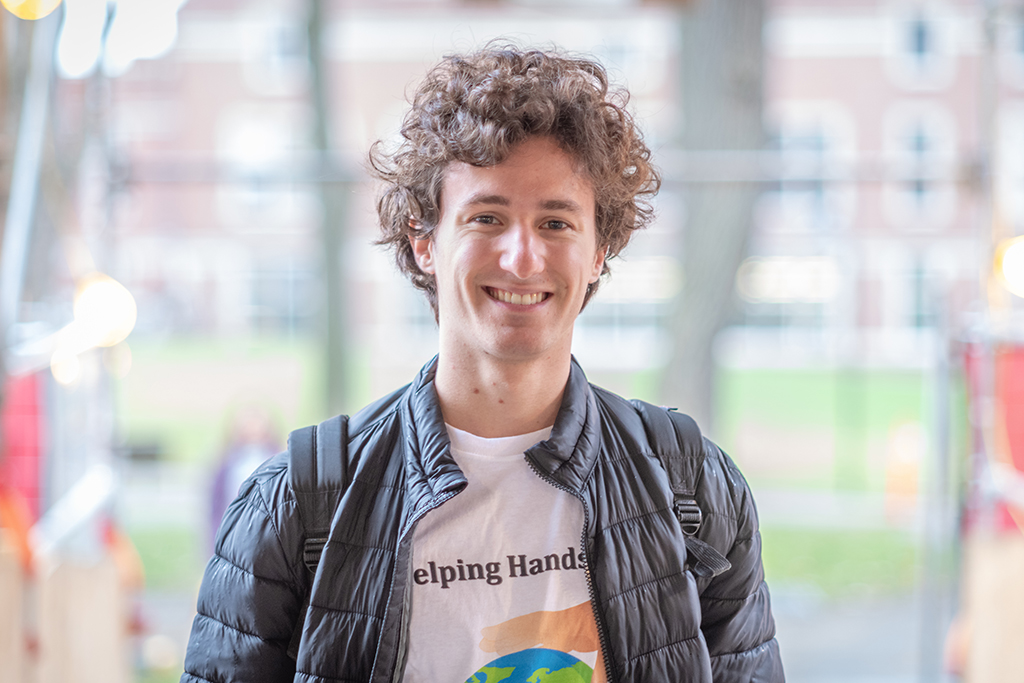Clark student earns Projects for Peace award for STEAM education

Jonathan Tamen ’26 has been awarded a $10,000 Projects for Peace stipend for Students Helping Hands, which aims to address disparities in education in Miami Beach, Florida. The organization supports immigrant and underprivileged students with community-oriented, experiential STEAM (Science, Technology, Engineering, Art, and Math) programming.
Tamen works in partnership with his brother, David, a student at Boston University, and Paola Cedeño, who attends Seneff Honors College at Valencia College in Orlando, Florida.
“The goals are to teach STEAM concepts, introduce STEAM careers, and address the summer slide of critical math, science, and comprehension skills — exacerbated by the pandemic and identified in declining test scores in the city’s Title 1 elementary and K-8 schools,” the partners wrote in their project summary. “This program works to close the achievement gap between disadvantaged students and their peers, helping them to find success in the classroom and confidence in their ideas to create a better world. In partnership with the City of Miami Beach, our program will reach 300 students, predominantly from ethnic minority and economically disadvantaged groups, through four weeks of educational camps.”
In March 2020, Tamen and his twin brother, David, started a nonprofit organization called Helping Hands MB at their high school in Miami Beach. The 24-member group’s mission is two-fold: to harness 3D printing technology to provide prosthetic limbs to children who have lost a hand or fingers, and to provide and promote STEAM education opportunities for students who might not have access to them.
Read more about Helping Hands MB »
The Students Helping Hands camps will introduce STEAM to children in fourth and fifth grades as they build their own smart city — Boom Town, USA — collaborating in neighborhood design that advances disabled accessibility and creates a peaceful community. “They will learn about environmental science (climate change, sustainability), art and mathematics (architectural design), and engineering (electricity, construction),” Tamen’s project summary states. Small groups of students will use Archi-TECH Electronic Smart House to create solutions for sea level rise, inaccessibility, and unsustainable development in constructing their homes, and then pool these ideas together to develop their new neighborhood.
For sixth-, seventh-, and eighth-grade students, “World of 3D Printing” will teach them to assemble prosthetics for children around the world through the network of e-NABLE, an online group of doctors and engineers who design 3D printable prosthetic hands.
“We hope to motivate students to pursue advanced education and instill using STEAM education to change lives and create a more equitable and accessible world,” Tamen said.
Projects for Peace is a global program that encourages young adults to develop innovative, community-centered, and scalable responses to the world’s most pressing issues. Along the way, these student leaders increase their knowledge, improve their skills, and establish identities as peacebuilders and changemakers. Projects for Peace headquarters is hosted by Middlebury College’s Center for Community Engagement.
Clark University has been a Projects for Peace partner since 2008 and has been awarded 15 grants to date.


